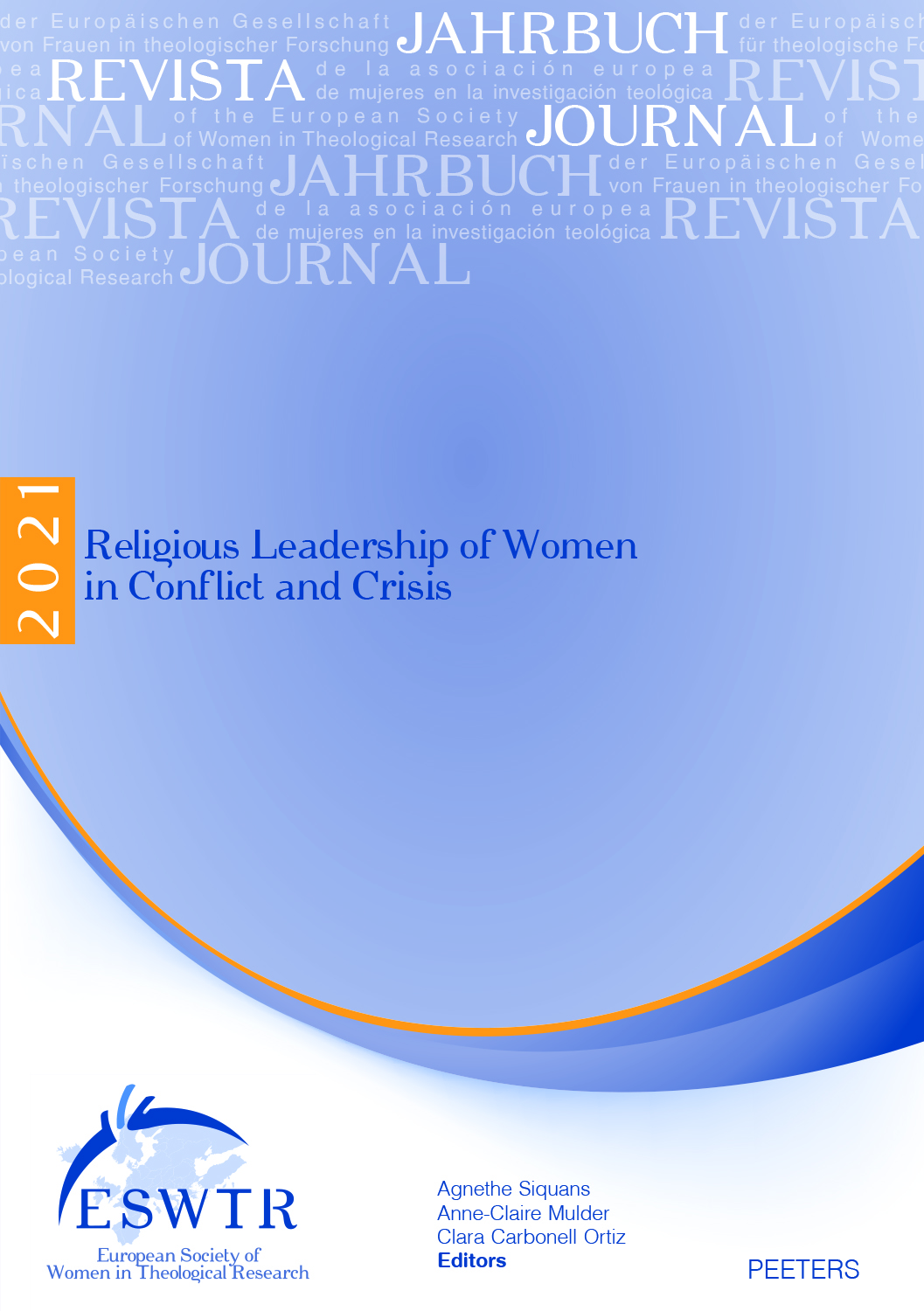 previous article in this issue previous article in this issue | next article in this issue  |

|
Document Details : Title: A Labyrinth of Incarnations Subtitle: The Social Materiality of Bodies Author(s): RIVERA, Mayra Journal: Journal of the European Society of Women in Theological Research Volume: 22 Date: 2014 Pages: 187-198 DOI: 10.2143/ESWTR.22.0.3040798 Abstract : This essay calls for theologies of the body to examine social-material incarnations. It explores the 'turn to the body' in religious studies, beginning with the ways that it builds upon liberationist and feminist theological movements. The body becomes a site for thinking through social inequality, human vulnerability, relationality, pain, and desire. This paper argues that something is missed when Christianity is simplistically construed as sexually repressive, and non-religious views of the body as intrinsically liberative. The challenge, this essay argues, is to think corporeality in a mode that refuses both objectifying knowledge, and idealizations that deny vulnerability. For these purposes, it is necessary to shift theological emphasis from discourse to materiality. Postcolonial theory analyzes the social and ideological constructions of bodies, but not the processes of materialization where biological, social, and economic factors interlace. Flesh and materiality rethought in this way – as overflowing, interweaving, and exposed – deepen the accounts of the relationships that constitute life. Dieser Beitrag fordert Körper-Theologien dazu auf, sozio-materielle Inkarnationen zu analysieren. Er untersucht die 'Wende zum Körper' in den Religionswissenschaften, angefangen davon, wie sie auf befreiungstheologische und feministisch-theologische Bewegungen aufbaut. Der Körper wird der Ort des Nachdenkens über soziale Ungerechtigkeit, menschliche Verletzlichkeit, Beziehungshaftigkeit, Schmerz und Begehren. Dieser Beitrag argumentiert, dass etwas nicht wahrgenommen wird, wenn das Christentum vereinfacht als sexuell repressiv und nicht-religiöse Perspektiven auf den Körper als inhärent befreiend dargestellt werden. Die Herausforderung, so die These dieses Artikels, ist, Körperlichkeit so zu denken, dass sowohl objektivierendes Wissen als auch Idealisierungen, die Verletzlichkeit verleugnen, zurückgewiesen werden. Deshalb ist es notwendig, den theologischen Schwerpunkt von Diskurs zu Materialität zu verschieben. Postkoloniale Theorie analysiert die soziale und ideologische Konstruktion von Körpern, aber nicht die Prozesse von Materialisierung, in denen biologische, soziale und ökonomische Faktoren verknüpft sind. Wenn Fleisch und Materialität so neu gedacht werden – als überfließend, verknüpft und bloß gestellt –, vertieft das unser Verständnis von Beziehungen, die Leben begründen. Este ensayo hace un llamado a las teologías del cuerpo a examinar encarnaciones socio- materiales. Primero explora la contribución de las teologías de liberación y feministas en la 'vuelta al cuerpo' en los estudios religiosos. En estas teologías, el cuerpo se convierte en el concepto central desde el cual analizan la desigualdad social, la vulnerabilidad humana, la relacionalidad, el dolor y el deseo. Este artículo presenta las limitaciones de representaciones simplistas del cristianismo como represivo y las visiones seculares como intrínsecamente liberadoras, señala la necesidad de pensar la corporeidad evitando tanto la reducción de los cuerpos a objetos como su idealización. Con este propósito es necesario moverse del énfasis teológico en el discurso hacia la materialidad. El pensamiento postcolonial analiza las construcciones sociales e ideológicas de los cuerpos, pero no sus procesos de materialización donde los factores biológicos, sociales y económicos se entrelazan. Repensar la carne y la materialidad como metáforas de desbordamiento, entretejido, y exposición contribuyen a desarrollar visiones más abarcadoras de la relaciones que constituyen la vida. |
 |
